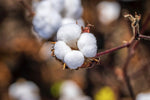
What does it mean to be GOTS certified?
GOTS 101: What does it mean to be GOTS certified?
The organic cotton movement champions a crucial commitment: lessening the environmental impact stemming from traditional cotton farming practices. Unlike its conventional counterpart, which heavily relies on synthetic pesticides and fertilizers, organic cotton production opts for natural methods that prioritize the health of the soil and the diversity of ecosystems.
By steering clear of harmful chemicals, organic cotton farming significantly reduces soil and water pollution. This choice not only benefits the immediate environment but also safeguards delicate ecosystems, ensuring the preservation of essential habitats for numerous species.
Moreover, organic cotton cultivation often incorporates sustainable practices such as crop rotation and intercropping. These techniques enhance soil fertility and resilience over time. By diversifying the crops grown in a field and rotating them seasonally, farmers replenish vital nutrients in the soil and prevent the buildup of pests and diseases. Additionally, this approach contributes to carbon sequestration, meaning that organic cotton farming helps to trap carbon dioxide from the atmosphere, thereby mitigating the impacts of climate change.

In a world grappling with escalating environmental challenges, embracing organic cotton presents a tangible opportunity for the fashion industry to adopt more sustainable practices. By choosing organic cotton over conventional options, clothing brands can play a significant role in reducing their ecological footprint and promoting a healthier planet for future generations.






